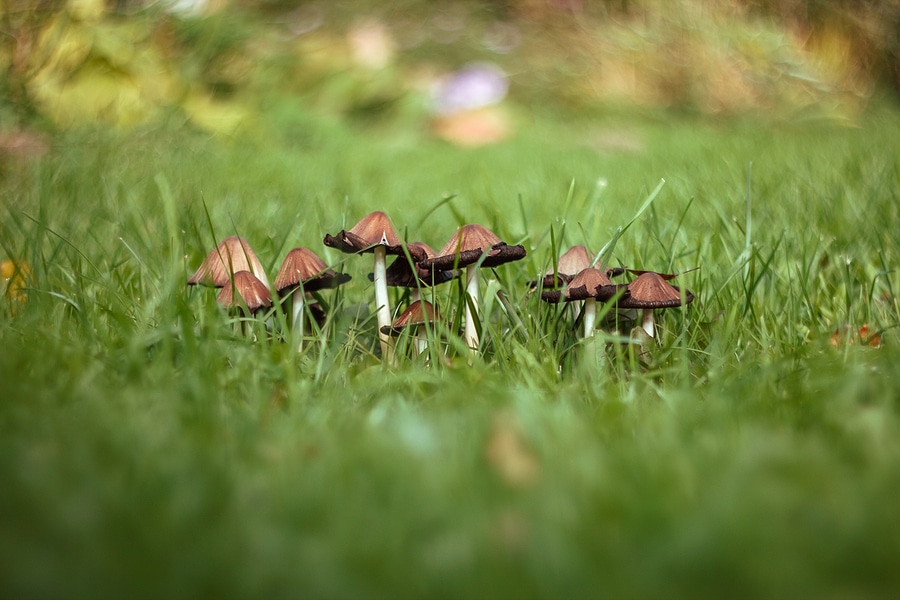A Guide to Lawn Fungus Treatment and Control in Tennessee

Maintaining a healthy lawn in Tennessee can be challenging, especially with the warm, humid climate that creates the perfect conditions for lawn fungus to thrive. From brown patch to dollar spot, fungal diseases can quickly take over, leaving your lawn looking dull and unhealthy. However, with the right knowledge and strategies, you can treat and prevent fungal problems to keep your yard lush and green. As an expert in lawn care, Dempster Brothers Lawn Care & Landscaping of Knoxville provides recommendations for fungus control and treatment in Tennessee.
Common Lawn Fungi in Tennessee
Before tackling a fungal problem, it’s essential to know what you’re dealing with. Some of the most common fungal diseases in Tennessee lawns include:
Brown Patch
- Appears as irregular brown patches, especially in tall fescue or Kentucky bluegrass
- Thrives in hot, humid conditions, particularly when the lawn is overwatered, or nitrogen levels are high
Dollar Spot
- Small, silver-dollar-sized spots of dead grass
- Often occurs in poorly fertilized lawns with low nitrogen levels
Pythium Blight
- Presents as greasy, water-soaked patches
- Develops in areas with poor drainage and excessive moisture
Red Thread
- Thin red or pink threads growing from grass blades
- Typically affects lawns with low nitrogen levels and poor soil health
Snow Mold
- White or pink fungal growth on grass after snow melts (common in late winter or early spring)
Signs of Lawn Fungus
How can you tell if your lawn is battling a fungal infection? Look for these warning signs:
- Discolored or dead patches of grass
- Irregularly shaped spots or streaks
- Moldy, web-like growth on the grass surface
- Greasy or slimy patches, especially after rain
- Thinning or weakened grass in affected areas
Treatment Options for Lawn Fungus
Once you identify a fungal problem, act quickly to prevent further damage.
Apply Fungicides
- Use a fungicide specifically formulated for the type of fungus affecting your lawn.
- Choose systemic fungicides for long-term protection or contact fungicides for immediate results.
- Follow product instructions carefully to avoid over-application.
Reduce Moisture
- Adjust your watering schedule to avoid overwatering. Water deeply but less frequently, preferably in the morning, to allow grass to dry before evening.
- Improve drainage in low-lying areas to prevent water pooling.
Improve Airflow
- Aerate your lawn to reduce soil compaction and improve root health.
- Remove excess thatch to enhance air circulation and reduce the likelihood of fungal growth.
Reseed Affected Areas
- For severely damaged lawns, reseed bare or thin patches with a fungus-resistant grass variety, such as turf-type tall fescue.
Adjust Lawn Care Practices
- Mow your lawn regularly, but avoid cutting it too short, as this stresses the grass and makes it more susceptible to fungus.
- Fertilize appropriately, ensuring nitrogen levels are neither too high nor too low.
Preventing Lawn Fungus in Tennessee
Prevention is key to keeping your lawn fungus-free. Incorporate these best practices into your lawn care routine.
Use Disease-Resistant Grass Varieties
- In Tennessee, opt for warm-season grasses like bermudagrass or zoysiagrass, which are more resistant to common fungal diseases.
Maintain Proper Lawn Health
- Keep your lawn healthy with regular mowing, fertilizing, and aeration.
- Test your soil periodically to ensure it has the right pH and nutrient levels.
Water Smart
- Water your lawn early in the morning to allow the grass to dry quickly.
- Avoid overwatering, especially during humid summer months.
Control Thatch Buildup
- Thatch is a layer of dead organic material between the soil and grass. Too much thatch can trap moisture and create a breeding ground for fungi.
Seasonal Fungicide Applications
- Apply preventative fungicides in late spring or early summer, when fungal diseases are most likely to appear in Tennessee’s climate.
When to Call a Professional
If your lawn fungus problem persists despite your best efforts, or if the infection spreads rapidly, it may be time to consult a lawn care professional. Professionals can diagnose the issue accurately and recommend advanced treatments, including customized fungicide programs.
Conclusion
Lawn fungus can be a frustrating problem for Tennessee homeowners, but with the right approach, it’s manageable. By understanding the types of fungi common to your area, applying effective treatments, and practicing preventive care, you can keep your lawn looking vibrant and healthy year-round. The lawn care professionals at Dempster Brothers are experts at helping you achieve and maintain a beautiful lawn. Contact Dempster Brothers at (865) 264-8925 to discuss your lawn care needs. Stay proactive, and your lawn will reward you with a lush, green space that’s free from the blight of fungus!
